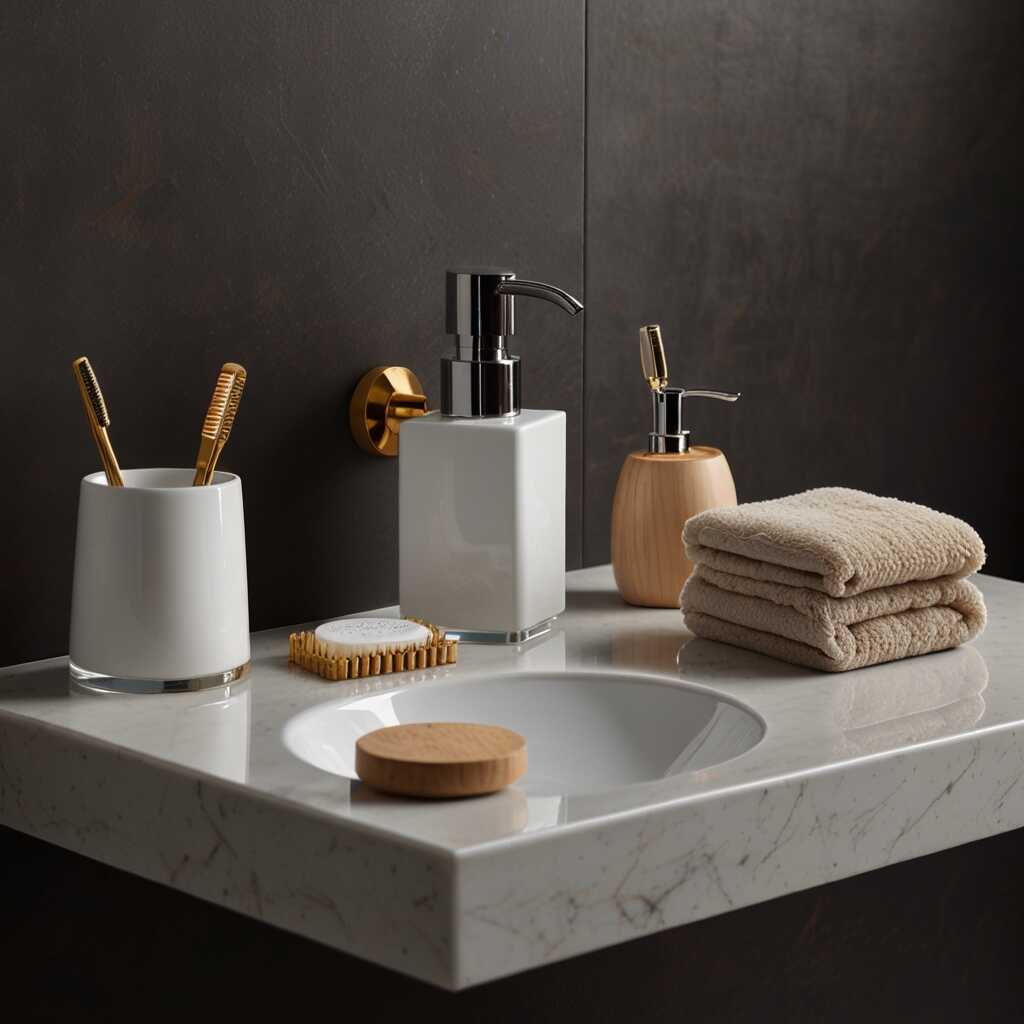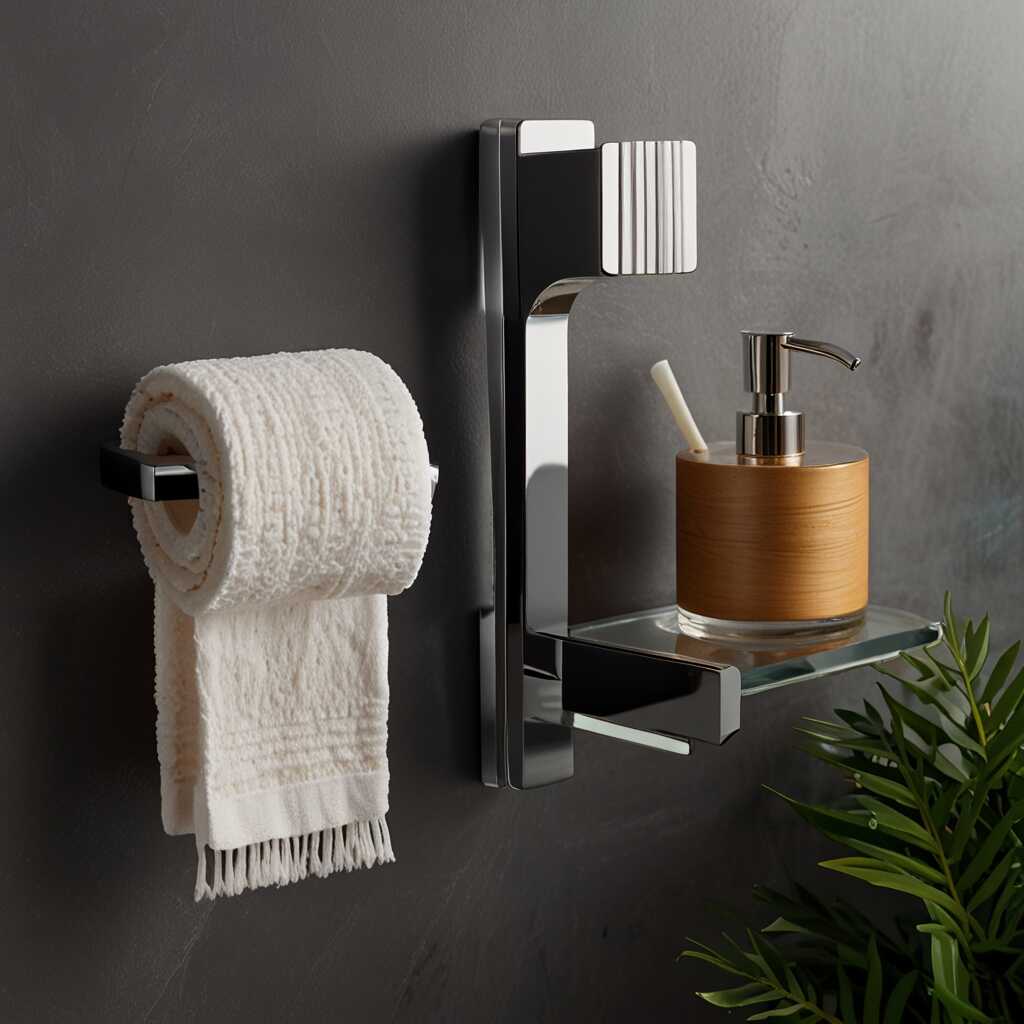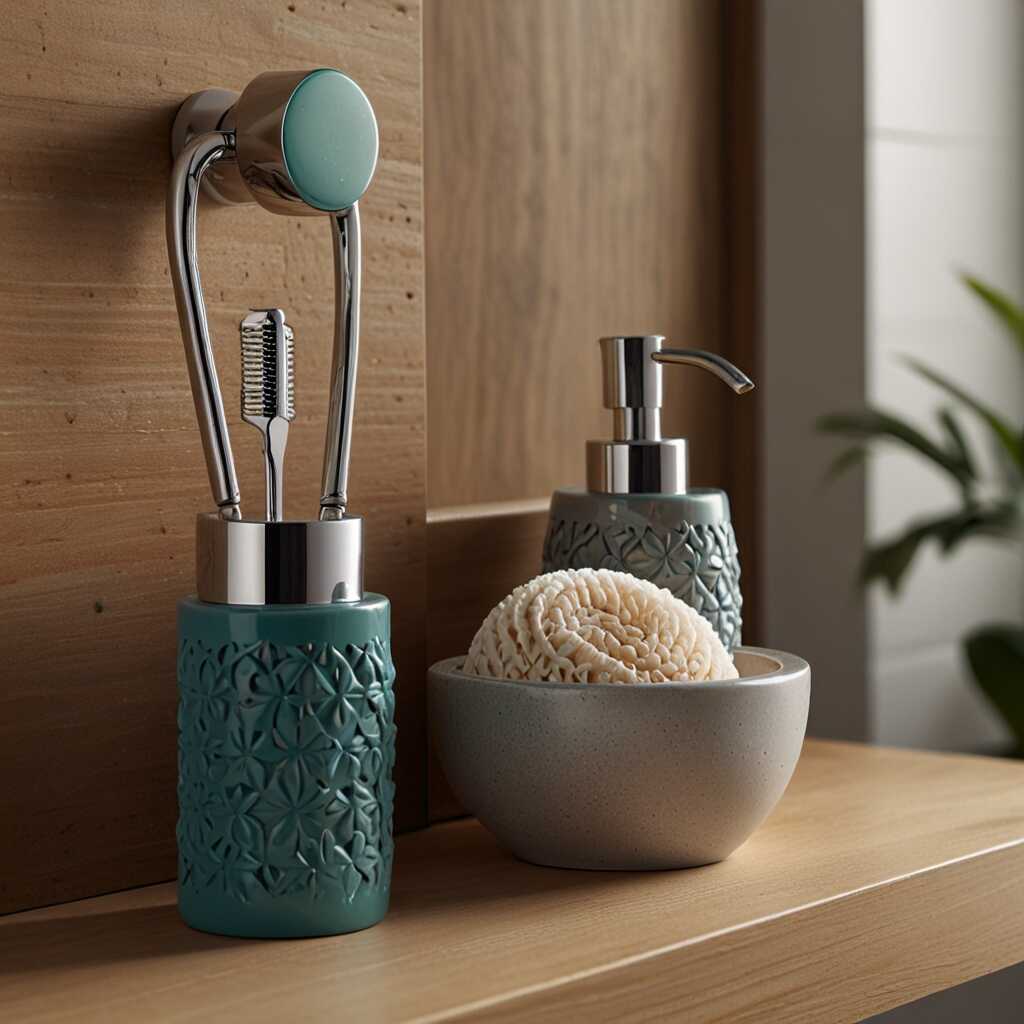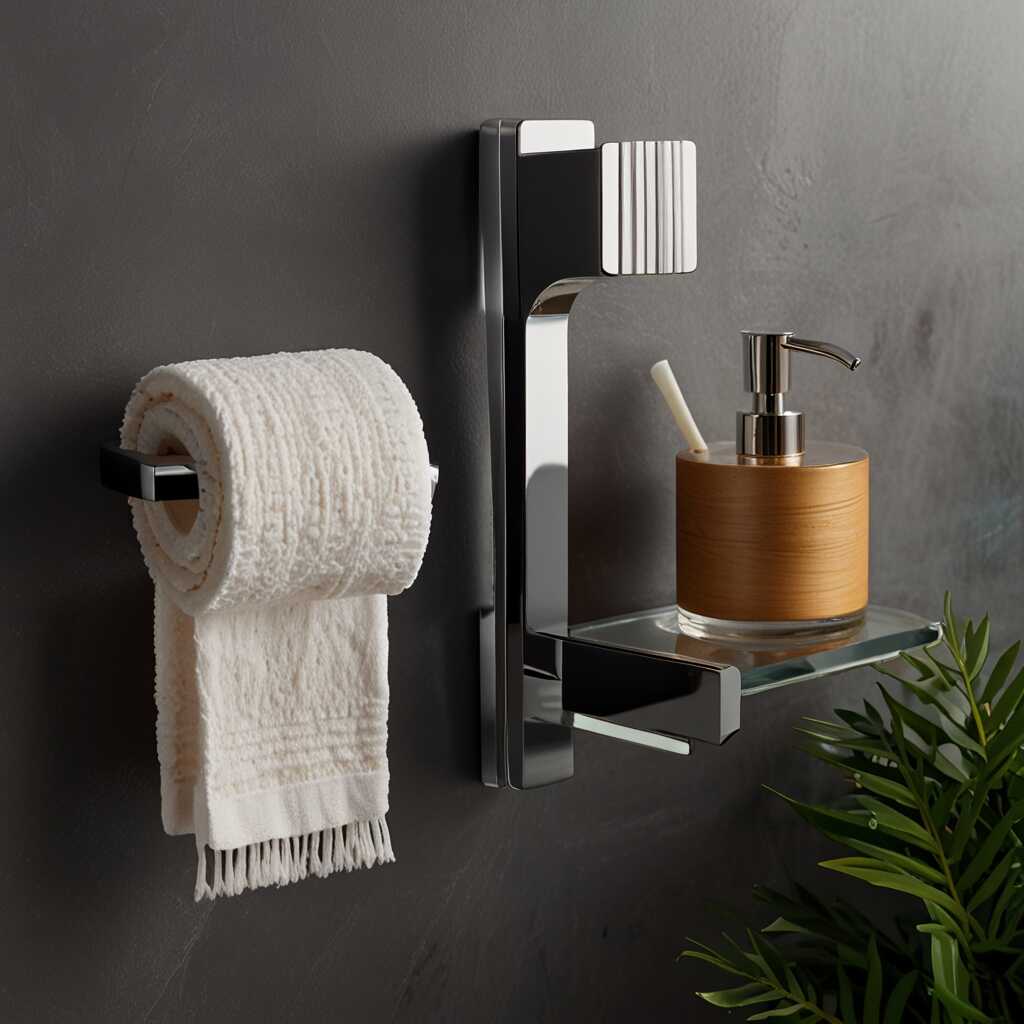Top maintenance tips for keeping your glass bathroom door spotless include choosing the right cleaning products and using proper techniques. Selecting effective cleaners, employing the best practices when wiping, and maintaining a regular cleaning schedule will help keep the glass door sparkling clean.
Table of Contents
- Choosing the Right Cleaning Products
- Eco-Friendly Cleaning Solutions
- Proper Techniques for Spotless Glass Bathroom Doors
- How frequently should I clean my glass door?
- Preventing Water Spots and Streaks
- What role does water temperature play in preventing streaks?
- Maintenance Tools for Perfectly Clear Glass Doors
- Are microfiber cloths better than paper towels for glass doors?
- Best Practices for Preventative Maintenance
- How can sealing the glass help in maintenance?
- Managing Hard Water Stains and Mineral Deposits
- How often should I address mineral deposits to maintain a spotless door?
Choosing the Right Cleaning Products
The best cleaning products for glass bathroom doors are specifically formulated glass cleaners from reputable brands like Windex and Glass Plus. Chemical cleaners can affect the longevity of glass doors if used excessively. Eco-friendly cleaning products, including natural cleaning solutions, are very effective on glass doors and are safer for both the glass door and the environment. Household items like vinegar and baking soda can also be used effectively on glass doors, providing a natural and cost-effective option alongside specialized glass cleaning brands.
Eco-Friendly Cleaning Solutions
The top eco-friendly cleaners for glass doors include brands like Seventh Generation and Method, which offer effective natural cleaning products. Vinegar and baking soda are very effective on glass, with vinegar removing streaks and baking soda addressing tougher grime. These eco-friendly cleaners can prevent water spots from forming by reducing residue left on the glass surface. DIY cleaning solutions, such as a mix of vinegar and water or a paste of baking soda and water, are excellent green cleaning methods for glass doors.
Proper Techniques for Spotless Glass Bathroom Doors
The correct way to wipe a glass bathroom door is to use a soft cloth or a handheld squeegee, wiping in straight strokes rather than circular motions. Cleaning the glass door frequently, at least once a week, helps to maintain its shine and prevent build-up. Special cleaning tools like squeegees and microfiber cloths are designed for glass door maintenance, ensuring no scratches and effective cleaning. Using straight strokes instead of circular motions is recommended for avoiding streaks and ensuring thorough cleaning.
How frequently should I clean my glass door?
Glass doors should be cleaned at least once a week to stay spotless, especially in humid environments. The frequency of cleaning depends on several factors, including the bathroom’s humidity level and the amount of daily use. Irregular cleaning can harm the surface of the glass door, causing permanent stains or etching. Daily cleaning is necessary for areas with hard water to prevent mineral deposits from accumulating on the glass surface.

- Makes the bathroom look amazing
- No more soap scum hiding spots
- Easy to see inside for quick cleaning
- Curtains leave mold, glass does not
- Shows off your clean bathroom
- It’s long-lasting with proper care
- Lets in more light for a brighter room

Comprehensive Guide to Top Maintenance Tips for Spotless Glass Bathroom Doors
| Tip | Frequency | Materials | Cost | Time Required | Effectiveness |
|---|---|---|---|---|---|
| Daily Wipe | Daily | Microfiber Cloth | $5 | 2 mins | High |
| Vinegar Solution | Weekly | Vinegar & Water | $1 | 5 mins | Medium |
| Lemon Juice | Biweekly | Lemon | $1 | 7 mins | Medium |
| Commercial Cleaners | Monthly | Chemical Cleaner | $10 | 10 mins | High |
| Squeegee | After Use | Squeegee | $7 | 1 min | High |
| Ventilation | Always | Vent Fan | $50 | N/A | High |
Preventing Water Spots and Streaks
Minimizing water spots on glass bathroom doors can be achieved by drying the glass immediately after each use. Using a squeegee effectively prevents streaks, leaving the glass spotless. Employing products like Rain-X, designed to repel water, helps as well. Cleaning glass with lukewarm water ensures streak-free results due to its optimal temperature for dissolving soap scum. Glass door protectants and anti-streak sprays are excellent choices for maintaining clarity on glass doors, with brands like Rain-X offering reliable solutions.
What role does water temperature play in preventing streaks?
Hot water cleans glass more effectively than cold water because it dissolves residue faster. The ideal water temperature for streak-free glass is lukewarm, around 90°F to 110°F. Using lukewarm water offers benefits like balanced effectiveness and safety for cleaning glass doors. Water temperature impacts cleaning products’ effectiveness, enabling agents in the products to work optimally for streak-free cleaning, ideal when using brands like Windex.
Maintenance Tools for Perfectly Clear Glass Doors
The top maintenance tools for glass bathroom doors include squeegees, microfiber cloths, and specialized glass cleaners. Investing in specialized cleaning tools can make a noticeable difference, providing impressive, streak-free results. Microfiber cloths, with their high absorption capabilities, outperform paper towels for glass doors. Electric squeegees, such as Kärcher’s models, significantly improve cleaning efficiency, ensuring spotless glass with minimal effort compared to manual squeegees.
Are microfiber cloths better than paper towels for glass doors?
Microfiber cloths provide better streak-free results than paper towels due to their fine fibers and high absorption capabilities. Microfiber cloths can absorb up to seven times their weight in water, which is excellent for glass cleaning. Paper towels can scratch glass doors, presenting scratch risks not posed by microfiber. Microfiber cloths are cost-effective, reusable, and durable, making them a very practical choice for DIY home improvement fans, especially when opting for top brands like Scotch-Brite.

- Clean every week to avoid build-up
- Windex works great every 2 days
- Water spots start to form in 24 hours
- Vinegar can save $20 on cleaners annually
- A squeegee takes just 2 minutes to use
- Drying the door cuts cleaning time by half
- 90% of families use glass doors now

Best Practices for Preventative Maintenance
From my years of experience, regular maintenance checks ensure long-lasting cleanliness for glass bathroom doors. Consistent checks should be scheduled at least every two weeks to inspect for early signs of dirt buildup or damage. Sealing the glass can significantly help in maintenance by creating a protective barrier that repels water and soap scum, which extends the intervals between necessary cleanings. Ideal cleaning times are typically in the morning or evening after showers, as warmer temperatures and steam help loosen grime for easier removal. Moreover, bathroom accessories impact glass door upkeep by minimizing splash and residue on the doors, with items such as shower mats and squeegees being especially effective for preventative maintenance.
How can sealing the glass help in maintenance?
Sealing benefits glass doors by forming a protective layer that guards against stains and mineral deposits. A Consumer Reports survey suggests resealing every six months for optimal protection and performance of sealing products. DIY sealing options are available from brands like Rain-X and EnduroShield, which are highly rated for their ease of application. Signs of resealing needs include water not beading on the glass and the appearance of new stains, indicating it’s time to reseal for continued glass door protection.
Managing Hard Water Stains and Mineral Deposits
Products such as CLR and Lime-A-Way are best for removing hard water stains on glass doors, as confirmed by various customer reviews. To maintain a spotless door, addressing mineral deposits every two weeks is recommended, especially in areas with hard water. Natural remedies such as vinegar and baking soda can also be very effective in dealing with hard water stains, providing an eco-friendly cleaning option. Using water softeners can help in preventing future stains on glass doors, significantly reducing maintenance efforts and improving long-term cleanliness.
How often should I address mineral deposits to maintain a spotless door?
To avoid mineral buildup, it is important to clean glass doors at least once every two weeks. In hard water areas, weekly cleanings might be necessary to maintain pristine conditions. Factors like water hardness, frequency of use, and bathroom ventilation influence how often to clean for mineral deposits. Monthly deep cleaning can be enough to avoid major mineral-related issues if combined with regular maintenance and preventative measures, ensuring a consistent cleaning schedule.